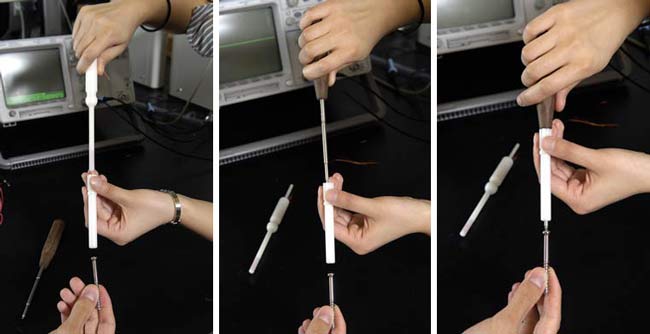Mini Metal Detector Finds Patients' Loose Screws

Get the world’s most fascinating discoveries delivered straight to your inbox.
You are now subscribed
Your newsletter sign-up was successful
Want to add more newsletters?
Join the club
Get full access to premium articles, exclusive features and a growing list of member rewards.
It's bad enough to have screws holding your body parts together. Adding insult to injury, surgeons often can't find the loose screws when they need to be removed.
A new miniature metal detector could solve the problem, allowing doctors to probe your body for screws like a weekend prospector surveys the beach for lost coins or wedding rings.
Tiny orthopedic screws, usually made of a stainless steel or titanium alloy, are often used to hold bone fragments together. Sometimes they shift, causing infection and pain. Up to 10 percent of them must be removed. But skin and scar tissue can make them hard to find.
The new device, developed at Johns Hopkins University in cooperation with the firm Surgical Transformations, emits a tone that rises in pitch as the surgeon moves closer to the metal screw. It's also a miniature screwdriver, so once found, a screw can be removed in the same session.
"When orthopedic screws are difficult to find, removing them can require an expensive operation," said Malcolm M. Lloyd, a physician and chief executive officer of Surgical Transformations. "Orthopedic surgeons told us it would be great to have a metal detector to locate these small, sometimes isolated screws."
The company is seeking to commercialize the product, which was announced today.
- Body Quiz: The Parts List
- Miniature Robot to Power Through the Spine
- Fantastic Voyage to Save the Heart
Get the world’s most fascinating discoveries delivered straight to your inbox.
 Live Science Plus
Live Science Plus











